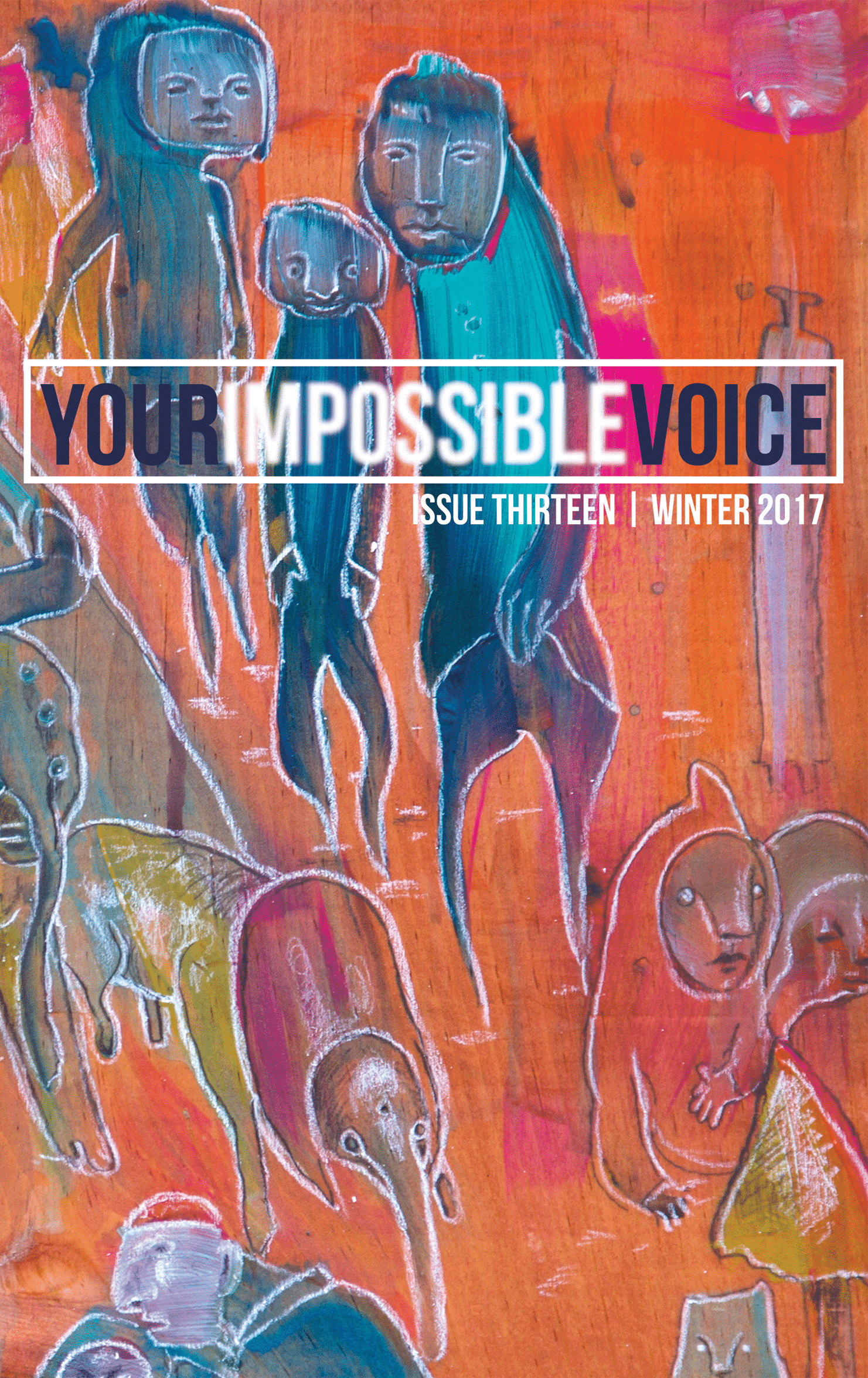Marlin M. Jenkins
The cancer grew inside you, eventually protruded between your ribs and surfaced on your skin in blackened bulbs. It looked like tar on one side of your torso, expanding down to fill your belly button, down further into urethra, behind your knees, under your toenails—upward to chest, nipples, throat, cheekbones. It covered you in a dark, bumpy mass. People started to ask if it would come off if they touched it.
The cancer didn’t smell like death or rotting or mold, but of pollen, coconut, fresh-cut grass. Once it encased you, it acted as an exoskeleton. It gave off a green and purple aura. It made newborns baffled, delighted, when you walked down the street while you still could—a black monster babies couldn’t hate even though their parents and guardians trembled at your presence. Like these streets don’t belong to you. Like you don’t still got a right to the air, a pulse, and a nightstand drawer filled with dreams of flying and light.
When the cancer spoke, it was never in words we could understand. Its voice reverberated after your mouth no longer moved. We listened. We used computer software to try to transcribe the message. We hired interpreters. We tried signing to the cancer and hoped it would sign back, but you just grew stiff, so still we could no longer see the rise and fall of your chest.
We could not interpret the cancer’s exact words, but we were sure it was demanding something. We offered our time and money. We gave it a crucifix, two turtledoves. Vials of our blood. The promise of our firstborn children. We wrote our social security numbers on index cards and gifted them in an envelope. We wrote it poems and promises as we tore our clothes and laid the pieces of cloth at your feet.
When it stopped speaking, we did not stop offering ourselves. We rented MRI machines, CT scan machines, anything to look inside ourselves for growing cells alive in us, speaking to us again. We spent more time out in the sun. We swallowed its rays. We stopped thinking about how outsiders looked at us when we walked down our own streets.
Marlin M. Jenkins was born and raised in Detroit and is a poetry student in University of Michigan’s MFA program. His writings have been given homes by The Collagist, The Journal, Word Riot, and The Offing, among others. You can find him online at marlinmjenkins.tumblr.com
Issue 13 | Winter 2017
More Horrible Things about Chessa

